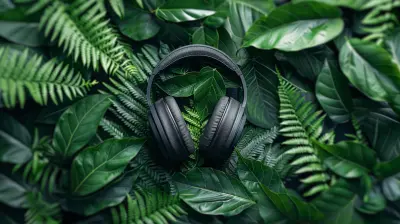The Importance of Flossing for Gum Health
9 June 2025
We all know the golden rule of dental care: brush your teeth twice a day. But what about flossing? It’s that one task that so many of us conveniently "forget" or simply choose to skip. After all, if we’re brushing, how bad can it really be to neglect flossing? Spoiler alert: pretty bad.
Flossing is the unsung hero of oral hygiene, an underrated yet crucial step in maintaining healthy gums. If you’ve ever wondered whether flossing is actually necessary or just another chore dentists nag about, keep reading. We’re about to uncover why your gums will thank you for making flossing a daily habit.
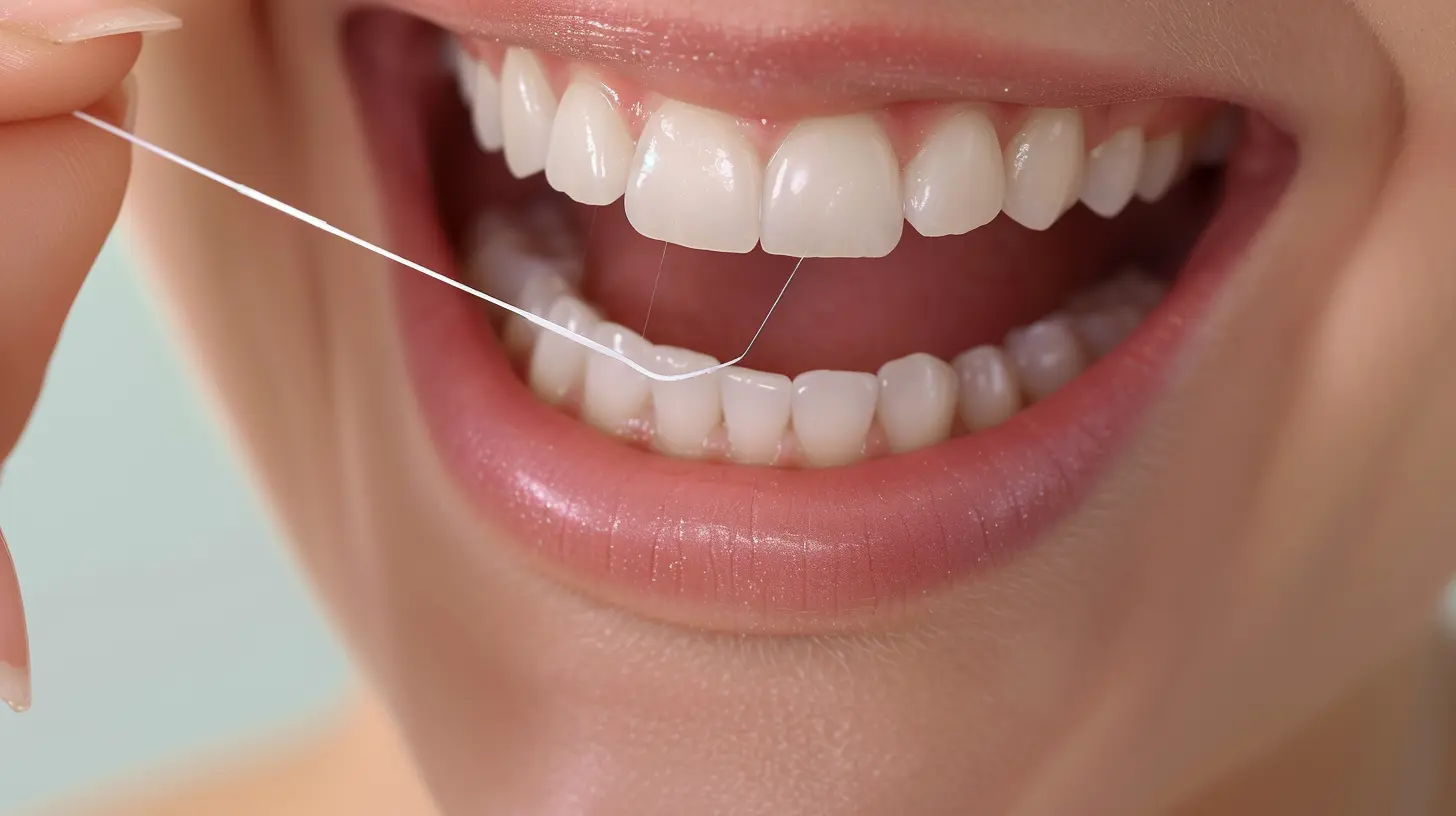
Why Flossing Matters More Than You Think
Brushing takes care of the surfaces of your teeth, but it’s like mowing only half of the lawn—what about the hidden spots in between? That’s where flossing swoops in to save the day.1. Prevents Gum Disease (And Trust Me, You Don’t Want That)
Gum disease sounds scary because—well, it is. It starts with gingivitis, which is basically gum inflammation caused by plaque buildup. If left unchecked, it can escalate into periodontitis, a severe condition where your gums start pulling away from your teeth. Worst-case scenario? Tooth loss.Flossing helps remove the plaque from those hard-to-reach areas where your toothbrush can’t go. By keeping your gum line free from debris, you significantly reduce your risk of developing gum disease.
2. Reduces Bad Breath (Nobody Wants Dragon Breath)
Ever notice that no matter how much mouthwash you use, your breath still isn’t as fresh as you’d like? That’s because food particles and bacteria trapped between your teeth don’t just disappear with a rinse. They sit there, breaking down, creating a less-than-pleasant odor.Flossing removes those hidden culprits, helping you maintain fresh breath. So, unless you enjoy the aroma of day-old garlic lingering in your mouth, grab that floss!
3. Protects Against Cavities (Because Fillings Aren’t Fun)
Cavities don’t just form on the easy-to-brush areas of your teeth; they love the tight spaces in between. When plaque sits between your teeth for too long, it starts eating away at the enamel, creating cavities. And let’s be honest—no one enjoys the sound of a dentist’s drill.Flossing is your secret weapon in the battle against cavities, ensuring that plaque doesn’t get the chance to cause damage in those sneaky little crevices.
4. Saves You Money (Dental Bills Aren’t Cheap!)
Think of flossing as an investment in your future. Regular flossing helps prevent dental problems that could lead to expensive treatments. Would you rather spend a few dollars on floss or hundreds (if not thousands) on fillings, deep cleanings, or gum grafts?Your wallet will thank you for making flossing a habit.
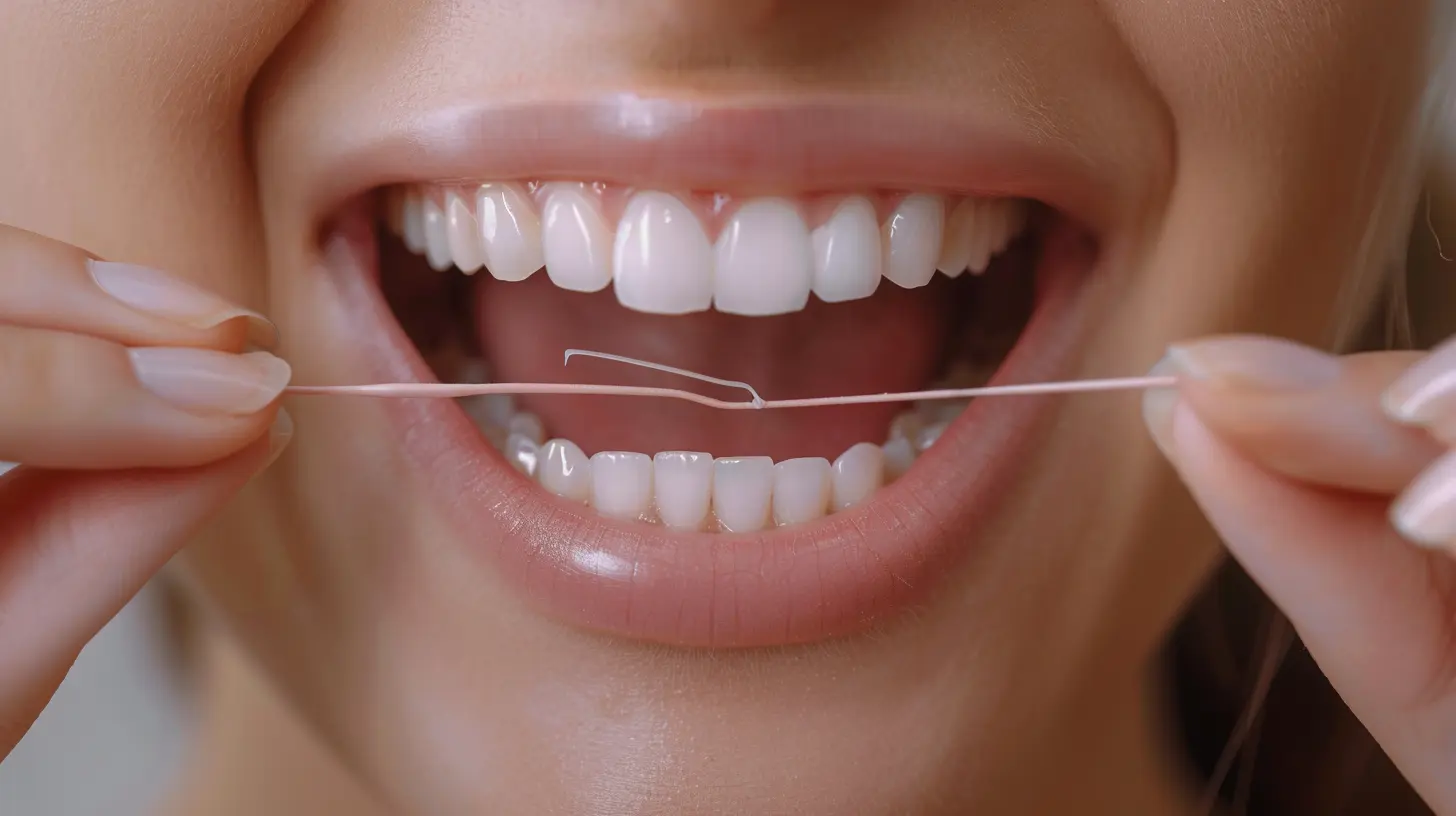
How to Floss Like a Pro
Okay, so now you’re convinced (or at least curious) about flossing. But doing it the right way is just as important as actually doing it. Here’s a quick step-by-step guide to ensure you’re flossing like a champ.Step 1: Get the Right Floss
There are different types of floss—waxed, unwaxed, flavored, dental tape—you name it. The best floss is the one you’ll actually use. If traditional string floss feels like a hassle, try floss picks or a water flosser.Step 2: Use Enough Floss
Don’t skimp! Aim for about 18 inches of floss (yes, really). This ensures you have a clean section for each tooth and don’t just spread bacteria around.Step 3: Be Gentle (Your Gums Aren’t a Battlefield)
Slide the floss between your teeth gently, forming a C-shape around each tooth. Avoid snapping it down roughly, as this can irritate or damage your gums.Step 4: Don’t Forget the Back Teeth
Those molars in the back? They need love too. Make sure you’re flossing all the way to the last tooth—bacteria love hiding there.Step 5: Make It a Habit
Flossing isn’t a once-in-a-while thing. A daily flossing routine keeps your gums in top shape. The best time to floss? Before brushing, so your toothbrush can wash away the loosened debris.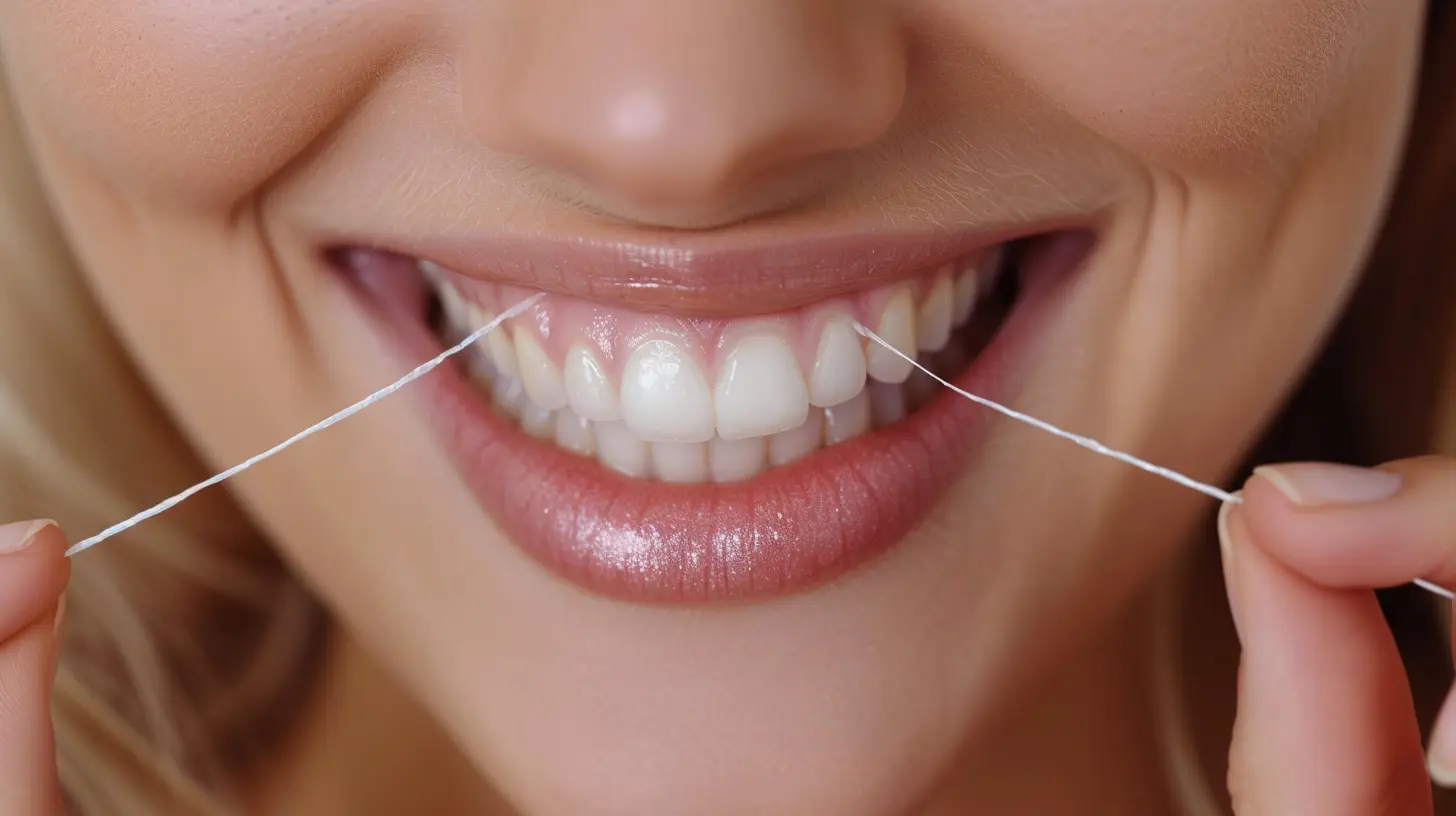
Common Excuses (And Why They Don’t Hold Up)
We all have reasons why we “forget” to floss. Let’s debunk some of the most common ones.“I Don’t Have Time”
Flossing takes about two minutes tops. You binge-watch shows for hours—surely, two minutes isn’t too much to spare?“My Gums Bleed When I Floss”
That’s actually a sign that you need to floss more! Bleeding gums indicate inflammation due to plaque buildup. Keep flossing, and over time, the bleeding will stop as your gums get healthier.“I Use Mouthwash Instead”
Mouthwash is great, but it doesn’t physically remove plaque. Imagine washing your dishes without scrubbing—would they really be clean? Exactly.“I Floss When I Have Food Stuck”
That’s a good start, but flossing isn’t just about removing food particles—it’s about preventing plaque buildup and gum disease. Just like you wouldn’t only shower when you’re visibly dirty, you shouldn’t floss only when you feel food stuck.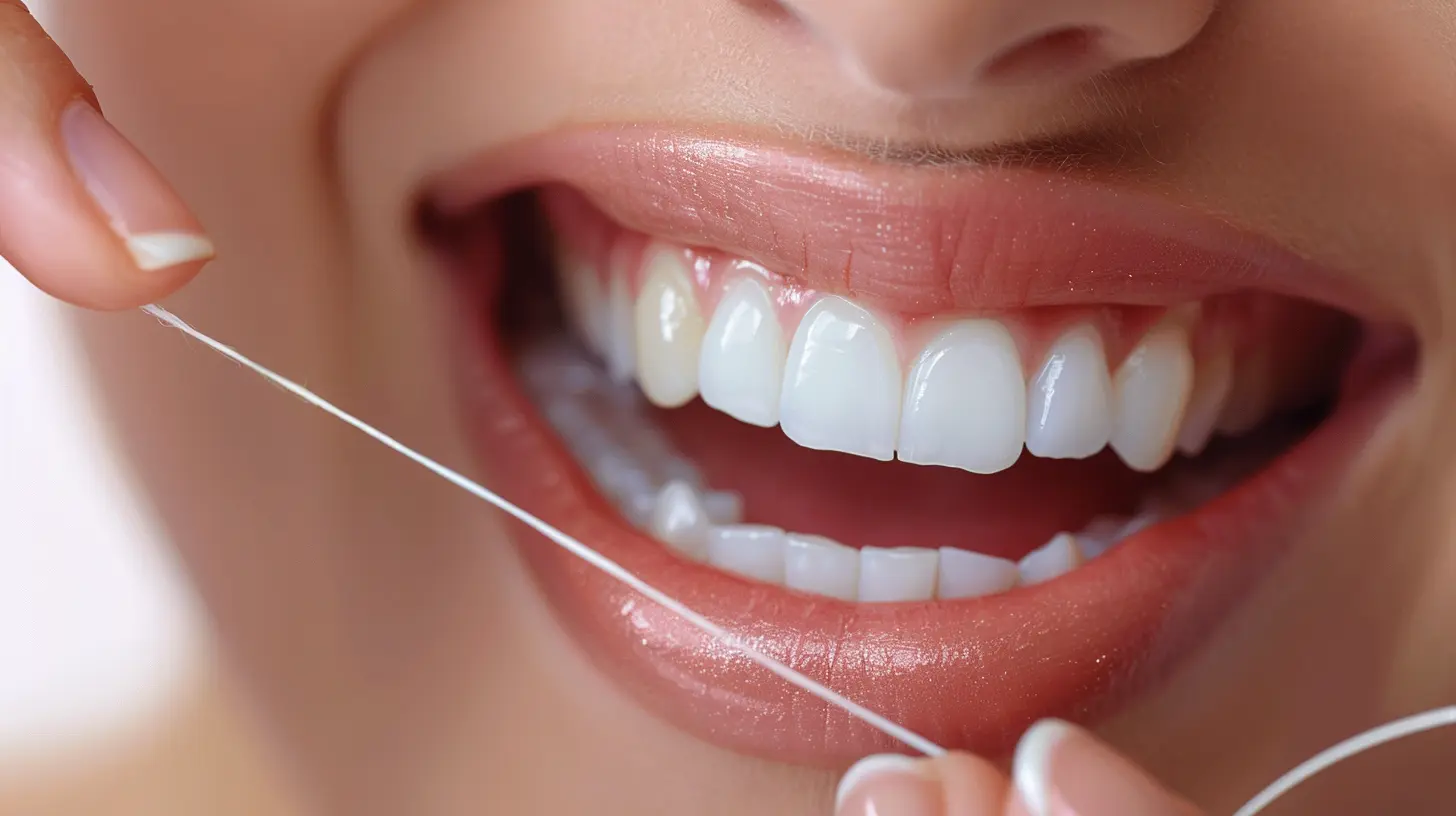
Final Thoughts: Love Your Gums, Floss Daily!
Flossing might not be the most glamorous part of your routine, but it’s one of the most important. Your gums are the foundation of your oral health, and taking care of them now will save you a lot of trouble (and pain) down the road.So, the next time you’re standing in front of the mirror debating whether to floss, just do it. Your gums—and your future self—will thank you!
all images in this post were generated using AI tools
Category:
Healthy TeethAuthor:

Jackson Mahoney
Discussion
rate this article
2 comments
Victoria O'Brien
This article effectively highlights flossing's critical role in maintaining gum health. By removing plaque and food particles that a toothbrush can miss, routine flossing significantly reduces the risk of gum disease, underscoring the importance of this often-overlooked dental practice.
June 14, 2025 at 2:35 PM

Jackson Mahoney
Thank you for your insightful comment! I'm glad you found the article highlights the essential role of flossing in preventing gum disease.
Mandy Reilly
Great article! Flossing is such a vital habit for maintaining gum health. Your insights make it clear how simple steps can lead to a healthier smile. Keep it up!
June 9, 2025 at 3:32 AM

Jackson Mahoney
Thank you for your kind words! I'm glad you found the insights helpful for promoting gum health.

